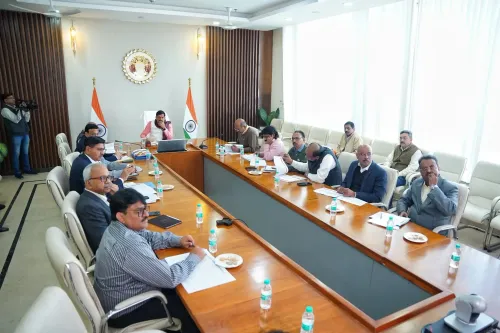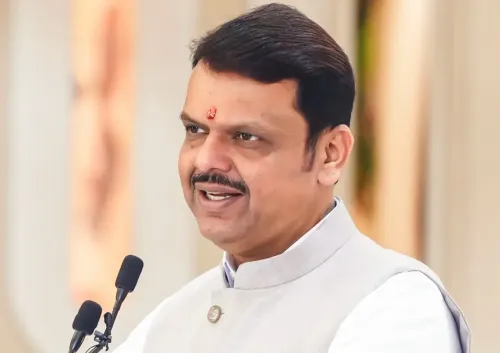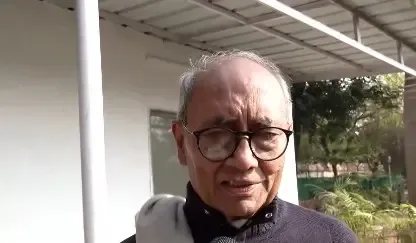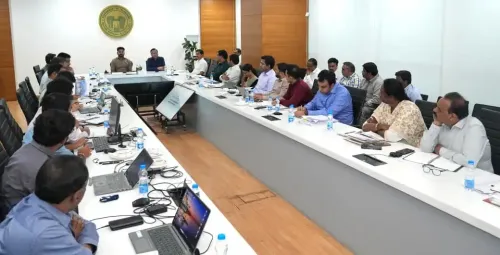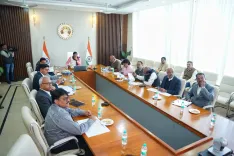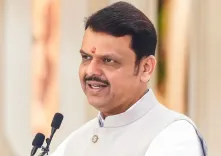Is Using Surplus Timber from Puri Temple for Digha Deities Ethical? Suvendu Adhikari Questions
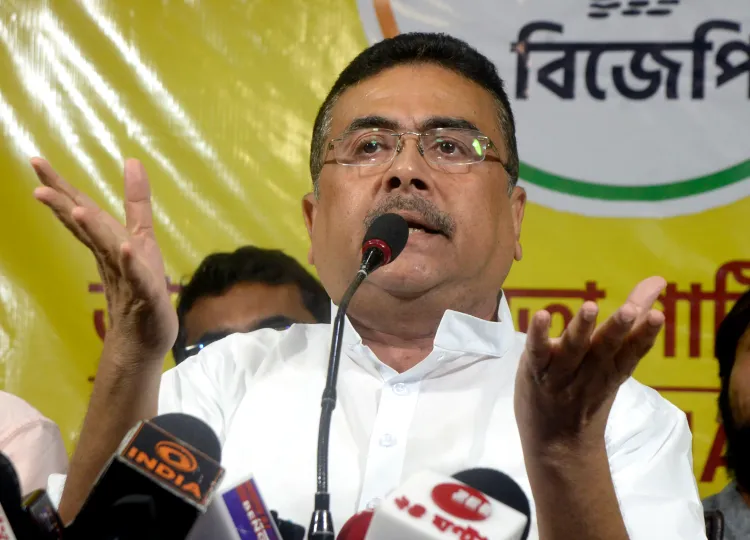
Synopsis
Key Takeaways
- The use of surplus timber from Puri's Jagannath Temple for Digha raises ethical concerns.
- Adhikari emphasizes the importance of respecting Jagannath culture and traditions.
- The term 'Dham' has significant implications in Hinduism.
- Legal investigation into the matter has been initiated by the Odisha government.
- The naming of the Digha structure could mislead devotees.
Kolkata, May 4 (NationPress) The practice of utilizing surplus timber intended for Puri’s Jagannath Temple to sculpt deities at the Jagannath Temple in Digha, located in the East Midnapore district of West Bengal, officially known as the Jagannath Dham Cultural Central Centre, raises significant ethical and moral concerns, according to BJP leader Suvendu Adhikari on Sunday.
“The dubious involvement of servitors and the unauthorized application of surplus sacred wood, particularly the wood collected from the Nabakalebara rituals, blatantly violates the ethics and morality that underpin the Jagannath Culture and its long-standing traditions,” Adhikari stated in a post on his official X account.
He praised the Odisha government for directing the Shree Jagannatha Temple Administration in Puri to investigate the matter thoroughly. "I commend the actions taken by Shri Prithviraj Harichandan, Hon’ble Minister of Law, Works & Excise, Govt of Odisha, for a comprehensive inquiry into the controversies surrounding the dubious actions of individuals related to the Shree Jagannath Temple of Puri," he mentioned.
Adhikari criticized the West Bengal government led by Chief Minister Mamata Banerjee for their misleading tactics, which include officially designating the Digha structure as the “Jagannath Dham Cultural Centre” while simultaneously promoting it as a “Jagannath Temple”.
This, he claims, is a deliberate attempt to mislead devotees and exploit their sentiments.
Legal experts suggest that referring to the Digha structure as the “Jagannath Dham Cultural Centre” was a strategic move to circumvent controversies about utilizing public funds for the construction and development of a religious site.
Adhikari, who serves as the Leader of Opposition in the West Bengal Assembly, emphasized the need to address the controversies arising from the designation of the structure as Jagannath Dham Cultural Centre, noting that the term “Dham” carries profound religious and historical implications.
According to Hindu beliefs, aside from the temples at Badrinath, Rameswaram, Dwarka, and Puri, no other religious site can rightfully be referred to as a “Dham”.
“The issue surrounding the naming of this newly constructed site as a 'Dham' must be resolved, and the duplicity of the West Bengal government must be exposed,” Adhikari's post asserted.
He noted that although numerous Lord Jagannath Temples exist across India and globally, none are designated as “Dhams”.
“Creating a replica of the Puri Jagannath Shree Mandir and passing it off as 'Jagannath Dham' with the intent to rival or overshadow Puri’s significance is profoundly inappropriate. The actions of Daitapati Nijog Secretary Ramakrushna Dasmohapatra and Radharaman Das, also known as Rahul Yadav, warrant scrutiny as their conduct has shown blatant disrespect to Jagannath culture, undermining the trust of devotees and misusing their positions within respected institutions.


